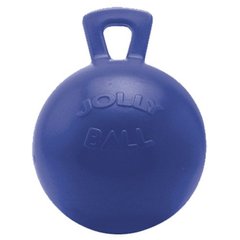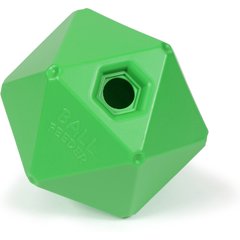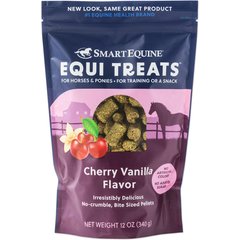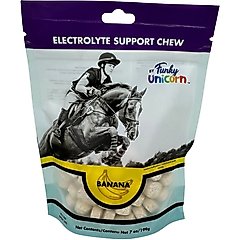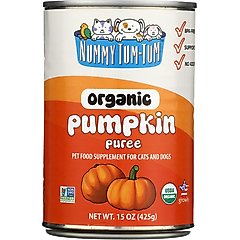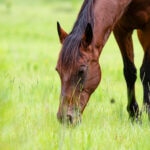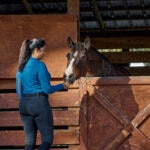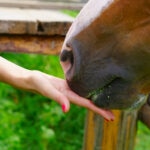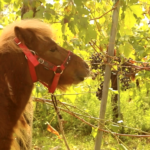Can Horses Eat Pumpkin?
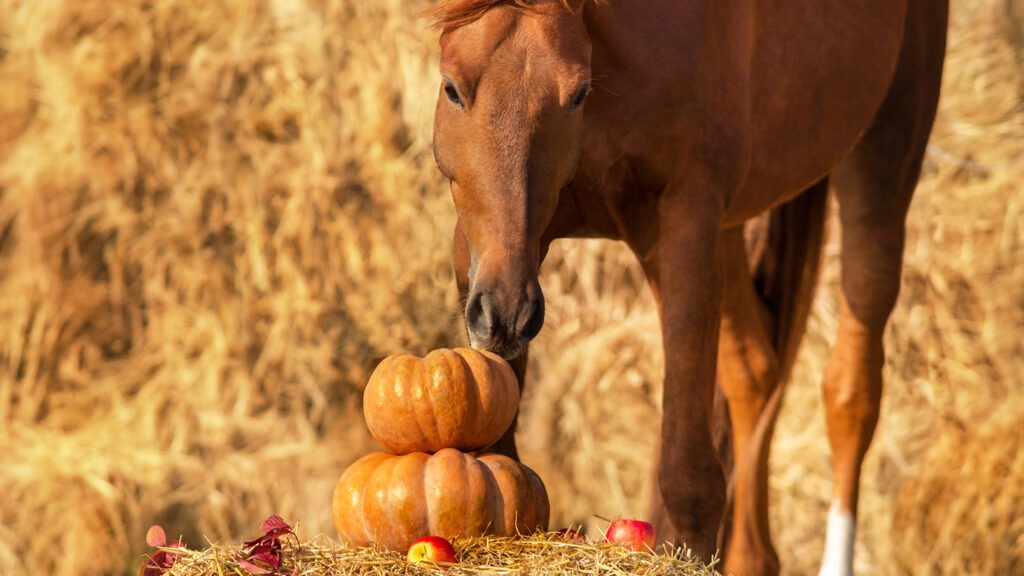
Photo by Callipso/iStock/Getty Images Plus
Whether you’re sipping a pumpkin spice latte on the way to the barn, harvesting squash from the garden, or pondering what to do with a leftover jack-o’-lantern, you might be wondering, “Can horses eat pumpkin?”
The good news is pumpkin is a safe horse treat. However, like all fruits, pumpkins should be fed to horses in moderation and never as a replacement for dietary staples, such as forage and concentrates. Pumpkin also shouldn’t be used as a treatment for any medical condition.
Always speak to your veterinarian before serving your horse new foods.
Can Horses Have Pumpkin?
Yes, horses can have pumpkin. And while both raw and cooked pumpkin are safe, most horses enjoy the texture of raw pumpkin thanks to its crunchy texture, says Grey Parks, MS, equine nutritionist at ProTrition in La Vergne, Tennessee.
Horses can eat nearly every part of the pumpkin—flesh, rind, and seeds—but skip the stem, which can be tough and hard to digest.
It’s not always convenient to buy and chop up a whole pumpkin just to give your horse a snack. Fortunately, there are many great pumpkin-based treats available, like Kelcie’s Pumpkin Spice Horse Treats.
Recommended Product
Is Pumpkin Good for Horses?
Pumpkin is a treat, not a primary component of a balanced diet for horses. However, it’s a more nutritious snack than some other treat options.
Here are the health benefits of pumpkin for horses:
It’s Packed With Vitamin A
Pumpkin, like carrots, gets its orange color from beta-carotene, which is turned into vitamin A in the body.
Vitamin A plays a role in reproductive health, immunity, bone health, vision, as well as acting as an antioxidant.
One cup of boiled, mashed pumpkin contains more than 12,000 IU of vitamin A.
It’s High in Fiber
Pumpkin contains 2.7 grams of fiber per cup of boiled, mashed pumpkin.
Over 60% of that fiber is the soluble kind, which helps to manage insulin levels and acts as a prebiotic for beneficial gut bacteria.
So, it might be a great treat—with your equine vet’s approval—for a horse with Cushing’s disease, especially if their daily hay ration is limited due to their metabolic condition.
It’s Hydrating
Pumpkin is 90% water, so it may be helpful for hydration during seasonal periods that can trigger colic.
“For us in California, September and October see a much higher percentage of colics. I encourage high water content foods during that time,” says practicing equine veterinarian Richard L. Stevens, DVM, of Conejo Valley Equine in Thousand Oaks, California.
It Provides Mental Enrichment
Possibly the biggest benefit of pumpkin? It’s great for enrichment.
Offering it in different textures and flavors—and using it to encourage foraging and problem-solving—can keep your horse mentally stimulated.
Try hiding pumpkin pieces around the stall to spark their curiosity and encourage natural exploring behavior.
Is Pumpkin Bad for Horses?
No, pumpkin isn’t bad for horses when fed safely and in moderation. But there are a few potential risks to keep in mind:
- It can cause digestive upset. Introduce pumpkin gradually, as you would any new food item. Feeding a whole jack-o’-lantern-sized squash at once is too much. If your horse enjoys playing with entire pumpkins, try a horse ball toy, like the Horsemen’s Pride Jolly Ball Tug-n-Toss, instead.
Recommended Product
- It may be difficult for older horses to chew. Older horses and those with dental issues might struggle with raw pumpkin chunks.
- It may not be safe for horses prone to colic. Horses with a history of colic—or those on a special vet-prescribed diet—shouldn’t be given new foods like pumpkin without veterinary guidance. Pumpkin’s fiber and sugar content can sometimes trigger digestive issues in sensitive horses.
How Much Pumpkin Can I Give My Horse?
Parks says treats should make up no more than about 1% of a horse’s diet by weight. For a horse eating 30 pounds of feed per day, that’s a little less than 5 ounces of treats.
Dr. Stevens recommends starting with a couple of slices or chunks of pumpkin for horses who haven’t tried it before. Then gradually work up to the maximum daily amount.
Remember to count any other treats fed against the daily limit and reduce pumpkin serving sizes accordingly.
Safe Pumpkin Serving Size for Horses
| Horse Size | Serving Size | Frequency |
|---|---|---|
| Small (under 600 pounds) | 2 ounces | Daily to every other day |
| Average (600–1,100 pounds) | 5 ounces | Daily to every other day |
| Large (1,100+ pounds) | 7 ounces | Daily to every other day |
It’s OK to adjust the daily serving size if you don’t feed treats every day—just don’t go overboard. Ten ounces every other day for an average-sized horse is probably fine, but skipping treats for six days doesn’t mean you should feed a couple of pounds of treats on the seventh day.
How To Safely Feed Pumpkin to Horses
Here are a few tips for safely prepping and feeding pumpkin to your horse:
- Only feed fresh pumpkin. Examine the pumpkin to ensure it is fresh, not moldy, and free from non-edible substances like candle wax.
- Cut raw pumpkin into chunks to reduce the risk of choking. And if you want to cook most of a pumpkin for a pie, you can simply spoon out the stringy core and seeds for your horse.
- Always thaw frozen pumpkin before serving. Cooked pumpkin may be frozen in ice cube trays to preserve it, but the chunks should be thawed before feeding to horses.
- If you’re feeding treats to multiple horses in a herd, place pumpkin chunks in several feed pans—at least one more than the total number of horses—spaced out around the pasture or paddock, to reduce the risk of resource-guarding behavior.
- Place pumpkin chunks in a foraging toy to increase their enrichment value. A popular option is the Shires Equestrian Products Ball Horse Feeder. This is especially helpful for horses who tend to gobble their treats.
Recommended Product
My Horse Ate Too Much Pumpkin—What Do I Do?
Overconsumption of any food or treat may cause digestive upset. If your horse has eaten significantly more pumpkin than you intended to offer them, watch for the following signs of colic:
- Refusing food or treats
- Inability to pass manure
- Biting or kicking at the sides/stomach, other than as a reaction to flies
- Sweating without exercise or unusual heat
- Lying down and getting up repeatedly
- Lack of gut sounds
- Elevated heart rate without exercise
- Rapid, shallow breathing
Colic in horses always requires an immediate call to your equine veterinarian. Mild cases may be treatable with home care, but that’s a decision for your vet to make.
Pumpkin is low in sugar and unlikely to cause laminitis. Still, Parks says that metabolically sensitive horses or those with chronic laminitis should be monitored for hoof pain any time they overeat.
What Other Fruits Can Horses Eat?
Most fruits, like pumpkin, are safe for horses as an occasional treat. If you’re looking for other ways to treat your horse, try these other equine-friendly fruits:
- Berries
- Stone fruits, like peaches and nectarines (remove the pits!)
- Bananas
- Cherries (pits removed)
- Pears
- Grapes
- Papayas
- Mangos
- Zucchini
- Watermelon
You can also try fruit-flavored, shelf-stable horse treats. Here are a few your horse might like:
Recommended Products
FAQs About Pumpkin for Horses
Can horses eat pumpkin seeds?
Yes, horses can eat pumpkin seeds either raw or roasted. Pumpkin seeds contain mainly omega-6 fatty acids, though, so if you’re looking for a source of omega-3s for horses, flaxseed is a better choice.
Can horses eat pumpkin guts?
Yes, horses can eat the stringy “guts” of a pumpkin, whether raw or cooked. This source of soluble fiber may even be a beneficial prebiotic.
Can horses eat pumpkin pie?
No, horses should not eat pumpkin pie. There’s too much added sugar in pumpkin pie to make it a healthful, frequent treat.
Can horses eat canned pumpkin?
Yes, horses can eat unsweetened canned pumpkin. Choose brands that are 100% pumpkin with no added ingredients, such as sugar. One popular option is Nummy Tum-Tum Pure Organic Pumpkin.
Recommended Product
Can horses eat pumpkin rind?
Yes, horses can eat pumpkin rind. Chop pumpkin rinds into small pieces before offering them to your horse to reduce the risk of choking.
Is pumpkin considered a cure for worms for horses?
No, don’t try to use pumpkin as a cure for worms. Parks says the trend of using pumpkin seeds as a horse dewormer is not backed by science.

